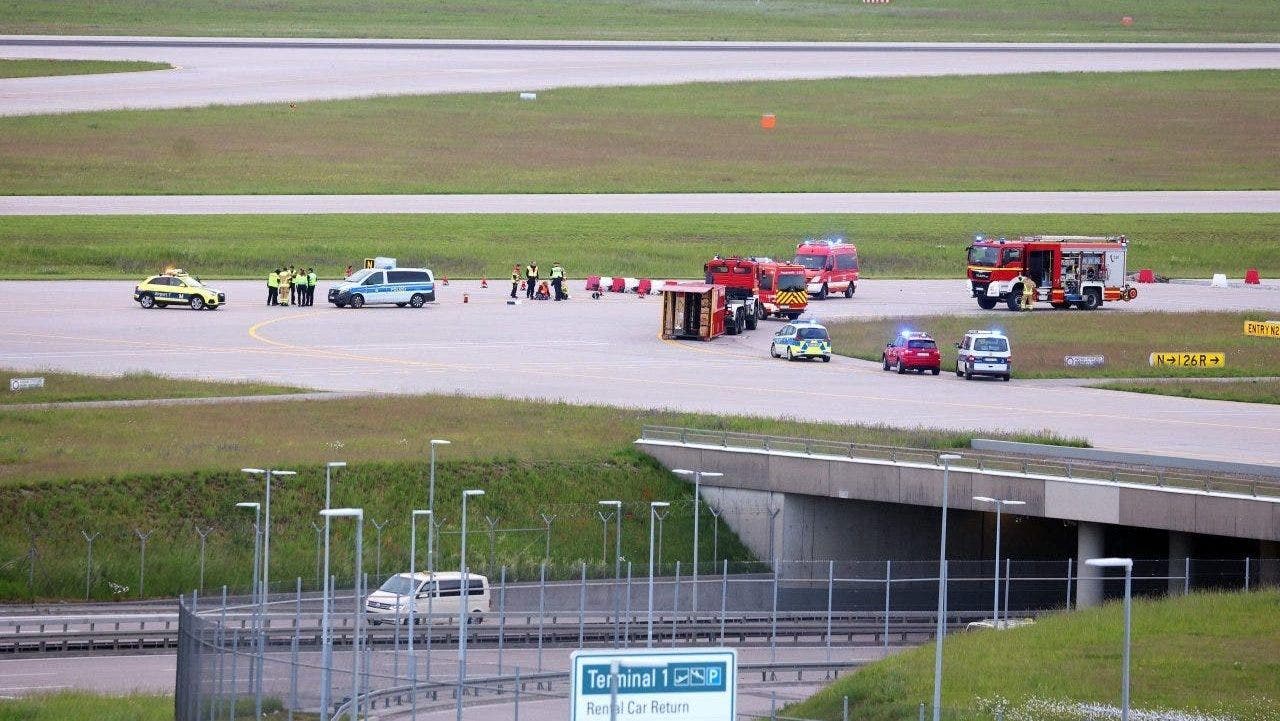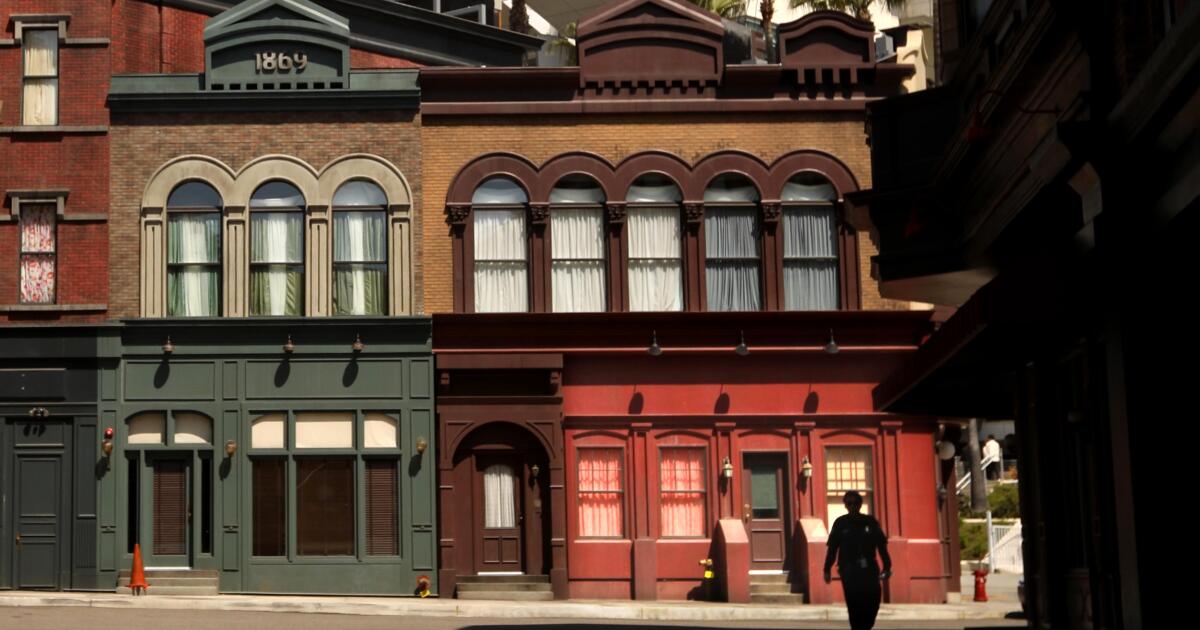World
Volcanic eruption in Iceland subsides, though scientists warn more activity may follow.
LONDON (AP) — A volcanic eruption in southwestern Iceland appears to have subsided, though scientists are warning that the area may experience further eruptions in the coming months.
Iceland’s Meteorological Office said late Thursday that the eruption had decreased significantly.
The eruption began at about 6 a.m. local time on Thursday in the area northeast of Mount Sýlingarfell, the Met Office said. It prompted the evacuation of the popular Blue Lagoon thermal spa and cut off heat and hot water to several communities on the Reykjanes Peninsula in southwestern corner of the island.
Prime Minister Katrin Jakobsdottir said authorities hope to restore hot water to the area by midday on Friday, national broadcaster RUV reported.
The eruption site is about 4 kilometers (2½ miles) northeast of Grindavik, a coastal town of 3,800 people that was evacuated before a previous eruption on Dec. 18. The town wasn’t threatened by Thursday’s eruption.
Benedikt Ófeigsson, a geophysicist at the Icelandic Met Office, told RUV that the area can expect an eruption every month or so over the next few months.
“In the long term, it’s very difficult to say, but in the short term, the next months, we will probably continue to see repeated magma intrusions and eruptions,’’ he said.

World
Sanchez: “I will recognise the Palestinian state next Wednesday”.

Spain’s prime minister said during a rally in Catalonia that he is going to propose the parliament’s official recognition of Palestine as a state on Wednesday, 22 May.
Sanchez defended the decision “out of moral conviction”, considering it “a just cause” and the “only way” to achieve peace and security in the Israeli-Palestinian conflict.
Ireland, Malta and Slovenia are expected to follow suit, and have already agreed to take the first steps in that direction.
In a phone call on Saturday, Taoiseach Simon Harris and Norwegian Prime Minister, Jonas Gahr Store agreed to remain in close consultation in the days ahead. Norway’s parliament adopted a government proposal in November for the country to be prepared to recognise an independent Palestinian state.
Harris and Store said that the deteriorating humanitarian conditions in Gaza underscored the need for an immediate ceasefire and for unhindered access for aid.
Earlier this week, Slovenian Prime Minister Robert Golob said his country would recognise Palestine’s statehood by mid-June.
Sanchez meanwhile criticised the Popular Party for refusing to recognise the Palestinian state and responded to former President Jose Maria Aznar by stating that “Spain will recognise it”.
The prime minister also acknowledged his party’s positive result in the Catalan elections of 12 May and said that Salvador Illa would make a good President of the Generalitat.
Spain would be the 10th European country to recognise the Palestinian State
There are already nine countries in the EU that have recognised Palestine as a state and Spain would be the tenth. On the list are: Bulgaria, Cyprus, Czech Republic, Hungary, Malta, Poland, Romania, Slovakia, Sweden and Slovakia.
Sanchez confirmed on Friday that Spain’s recognition will not be made at Tuesday’s Council of Ministers, as had been suggested.
The prime minister said that his position on the Israel-Hamas conflict is much like his country’s support for Ukraine following Russia’s invasion more than two years ago.
He stressed that Spain demanded ”respect for international law from Russia, and from Israel, for the violence to end, the recognition of two states, and for humanitarian aid to reach Gaza”.
Sanchez added his voice to a chorus of other European leaders and government officials who have said that they could support a two-state solution in the Middle East, as international frustration grows with Israel’s military actions in the Palestinian territories.
French President Emmanuel Macron said last month that it’s not ”taboo” for France to recognise a Palestinian state. British Foreign Minister David Cameron said that the United Kingdom could officially recognise a Palestinian state after a cease-fire in the Israel-Hamas war.
Five months after Hamas militants attacked Israel on 7 October, killing about 1,200 people and taking 250 others hostage, the Israeli military has responded with air and ground assaults that have killed more than 35,386 Palestinians, according to the Gaza Health Ministry.
Why does Spain support recognition of Palestine as a sovereign state?
Spain has been historically close to the Arab world and, as such, the nation is actively trying to push a line more favourable to Palestinian aspirations within the European Union.
In a speech made shortly after his re-election last year, Sanchez promised that his new government’s “first commitment” on foreign policy would be to “work in Europe and Spain to recognise the Palestinian state”.
At the same time, he said he was “on the side of Israel” in the face of “the terrorist attack” of 7 October, but also called on the Jewish state to put an end to the “indiscriminate killing of Palestinians”.
The stance comes at a time when many Western countries are facing criticism in the Arab world for being seemingly too favourable towards Israel.
In 2014, under a conservative government, the Spanish Parliament adopted a resolution calling for the recognition of the Palestinian state, supported by all political parties.
The vote, though, was non-binding and not followed by any action.
In Europe, several countries have taken this step in a more effective way.
They include Sweden, Hungary, Malta and Romania – but none of the main EU member states have done so, meaning that Spain could become a pioneer.
A brief history of Spanish-Arab relations
Geographically close to the Maghreb region of North Africa, Spain turned to Arab countries during the Franco dictatorship which ran from 1939 to 1975 in order to circumvent its isolation in the West.
It was not until 1986, however, that the nation established official relations with Israel.
The relatively late date was a consequence of tensions born from Israel’s opposition to Spain’s entry into the UN at the end of the Second World War, due to its proximity to Nazi Germany.
In 1993, they played a role in the Oslo Accords, through which Israel and the Palestine Liberation Organization mutually recognised each other as part of the peace process.
Overall, though, Spain remains perceived by many as a pro-Arab country.
At the end of October, a mini-diplomatic crisis even broke out with the Israeli embassy after controversial statements by a far-left Spanish minister who spoke of a “planned genocide” in Gaza.
With much of Europe firmly pro-Israel, Isaias Barrenada, a professor at the Complutense University of Madrid, said it will be an uphill battle for Sanchez.
”It is difficult to imagine that Spain has the capacity to reorient the European position,” Barrenada told AFP, but “it can contribute to showing that there are sensitivities within the EU.”
World
John Stamos Shares Full House Reunion Photo With Olsen Twins in Honor of Bob Saget’s Birthday

ad
World
Climate activists glue themselves to Munich airport runway, pausing traffic

A group of climate protesters have been arrested in Germany after breaking into an airport and gluing themselves to the runway.
Six activists broke through security fencing at Munich airport in the German state of Bavaria on Saturday, according to the news outlet dpa.
Approximately sixty flights were canceled after the half-dozen protesters glued themselves to the tarmac, forcing officials to temporarily close the airport.
CLIMATE ACTIVISTS ARRESTED FOR BLOCKING AIRSTRIP IN MASSACHUSETTS
Climate activists lie on an access road for runways at the Munich airport. German officials and local media say authorities closed down Munich airport temporarily after six climate activists broke through a security fence and glued themselves to access routes leading to runways. ( (Karl-Josef Hildenbrand/dpa via AP))
An additional fourteen flights into Munich were forced to divert to other nearby airports to avoid the disruption.
Climate protest coalition Last Generation took credit for the stunt, claiming it was intended to draw attention to the German government’s inaction on the airline industry’s environmental impact.
CLIMATE GROUP TAKES RESPONSIBILITY FOR US OPEN CHAOS, OFFERS WARNING: ‘NO TENNIS ON A DEAD PLANET’

Climate activists stuck to a runway access road at Franz-Josef-Strauß Airport early Saturday morning. Climate protection activists paralyzed Munich Airport after breaking into the inner area of the airport grounds. The activists from the group Last Generation were protesting flying, the most polluting form of transportation, said the German news agency dpa on Saturday. (Karl-Josef Hildenbrand/picture alliance via Getty Images)
All six protesters were arrested and charged by law enforcement.
“Trespassing in the aviation security area is no trivial offense. Over hundreds of thousands of passengers were prevented from a relaxed and punctual start to their Pentecost holiday,” German Airports Association General Manager Ralph Beisel told dpa.

Police and firefighters stand on a runway access road at Franz-Josef-Strauß Airport around climate activists who have stuck themselves there. According to their own statements, members of the so-called Last Generation had planned to enter the airport grounds in order to block at least one of the two runways. (Photo: Karl-Josef Hildenbrand/dpa (Photo by Karl-Josef Hildenbrand/picture alliance via Getty Images))
“Such criminal actions threaten air traffic and harm climate protection because they only cause lack of understanding and anger,” German Interior Minister Nancy Faeser wrote about the protests on social media platform X.
The Munich incident was just one of many similar protests around the world against air transportation. Last Generation has performed at least two similar airport disruptions in Germany since last year.
-

 Politics1 week ago
Politics1 week agoOhio AG defends letter warning 'woke' masked anti-Israel protesters they face prison time: 'We have a society'
-

 Finance1 week ago
Finance1 week agoSpring Finance Forum 2024: CRE Financiers Eye Signs of Recovery
-

 Politics1 week ago
Politics1 week agoBiden’s decision to pull Israel weapons shipment kept quiet until after Holocaust remembrance address: report
-

 World7 days ago
World7 days agoIndia Lok Sabha election 2024 Phase 4: Who votes and what’s at stake?
-

 News1 week ago
News1 week agoThe Major Supreme Court Cases of 2024
-

 News1 week ago
News1 week agoTornadoes tear through the southeastern U.S. as storms leave 3 dead
-

 World1 week ago
World1 week agoA look at Chinese investment within Hungary
-

 Politics1 week ago
Politics1 week agoTales from the trail: The blue states Trump eyes to turn red in November
















